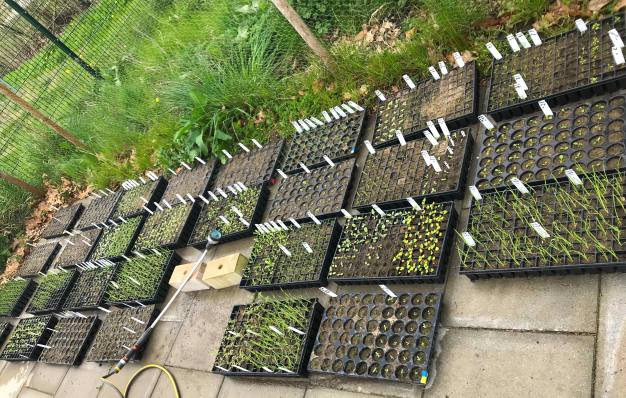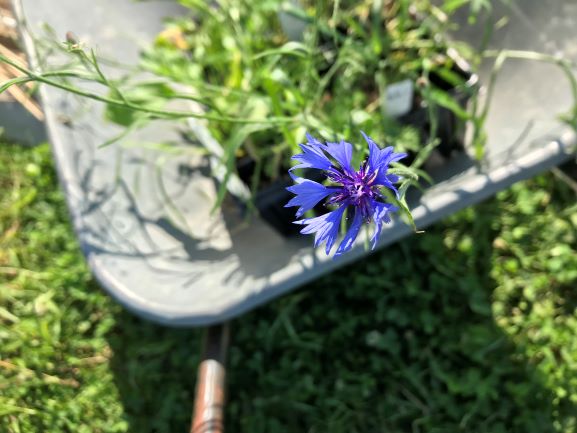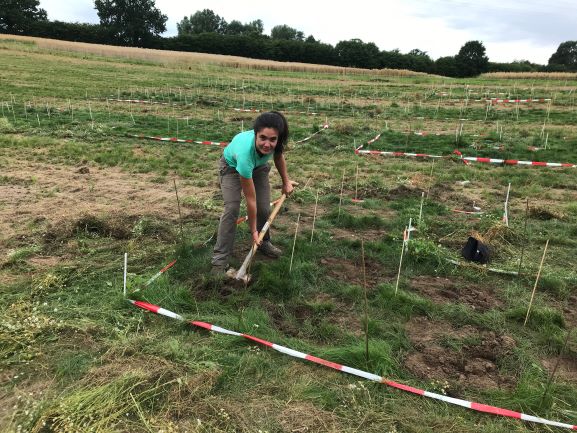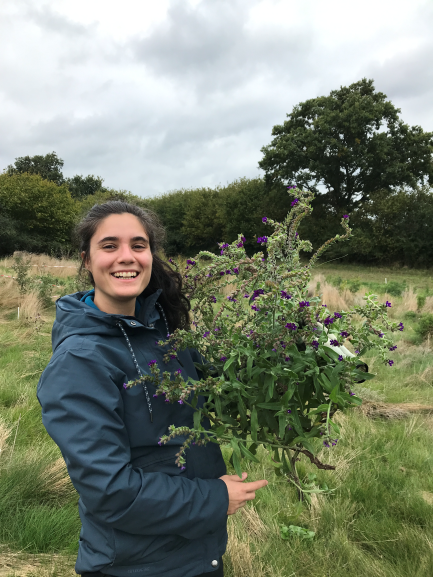When in January 2020 I started my PhD in Plant Ecology, I felt a mix of enthusiasm and anxiety. I knew the journey I was beginning would be arduous, and that was even before the several events that ended up making it even tougher than I expected. What follows is a recap of perhaps the hardest part of my PhD, how I overcame it and what I’ve learned from it.
After a hectic first year that coincided with the start of the Covid-19 pandemic, in the spring of 2021 I started preparing for a large experiment in a field. For this purpose, I had to germinate and raise in a greenhouse small plants from more than 60 species: a total of 2400 individuals. The plants required a lot of care to stay alive in their small vases, and both me and some student helpers put a lot of time and effort into making sure they did.

After a couple of months of growth, they were ready to be transplanted into the field where the experiment would have taken place. On the day of the planting campaign, a few things went wrong partly due to my lack of experience and partly due to simple bad luck.
The plan was to plant 1250 seedlings with two student helpers in the span of two days, which would have meant that each of us would have had to plant an individual seedling every 3 minutes, working around 10 hours plus a lunch break.
I can see now that I had largely underestimated the time that was actually necessary, which resulted in me becoming so stressed that I could barely think. The soil of the field was dry as I had never seen it before; the sun was shining and the temperature reached a whooping 28° at 8:00 am, almost unheard of in our region in Northern Germany. Due to the aridity of the soil and the merciless sun, both the plants in the vases and those already in the ground were looking quite wilted, but I didn’t give it too much thought, thinking it was just temporary. Having realised I needed more manpower, for the second day of the campaign I asked all my colleagues to join and some of them even brought students to help, as the situation was dire. With time, it was increasingly clear that the plants were doing worse and worse. After five to six hours of frenetic work, it was evident that continuing was pointless, as all the 1250 plants and the backup ones had died. Those plants that I had spent countless hours watering, re-potting, and protecting from herbivores, were gone in two days and I had nothing at hand to start my experiment.

This disaster caused a significant change not only in my mood but also in the way I saw myself and my research. I had never failed so hard during my academic career until then; I had experienced the occasional difficulty, but I had never felt in a “pit of despair”, as I later described it to my partner. Months of work ended up down the drain and I couldn’t help but feel that it was all my fault and that I wasn’t cut out to be a scientist. A week after the disaster, I met with my supervisors to decide on the best strategy to move forward and still take advantage of the summer season. Both of them were quite surprised by the difficulties I told them I encountered while preparing the experiment, which eventually led to my stressed state and the series of mistakes.
Very plainly they asked me why I hadn’t asked for help, and in that moment, I could not find the answer to that very simple question.
I didn’t know back then why I didn’t ask for help, but after a while, I came up with some possible explanations. Overall, the main one was that I didn’t know it was possible to admit needing a hand without that implying that I was an incompetent person that doesn’t deserve to do research. This reasoning may seem extreme to some readers, but it probably resonates deeply with others. Many PhD students, myself included, often forget that they’re still learning how to do research and feel an overwhelming pressure to do everything perfectly, showing no doubt or weakness. This feeling is amplified by the perception that we are surrounded by infallible people. At seminars and conferences, and in all that is published, only positive results and achievements are presented, leaving no room for mistakes. Researchers want to show that they’ve made good use of the funding they received, but this leads to an unrealistic portrayal of what it means to do research. This biased representation is damaging for young scientists, particularly those who haven’t had a chance to peek behind the curtains of science before. It is therefore no surprise that many PhD students suffer from imposter syndrome. Something that helped me get out of the pit of despair and worthlessness was talking to my colleagues and discovering that no, I was not the only PhD student who had to overcome failure. The lack of personal contact due to the pandemic delayed this realisation, but it arrived when I most needed it. Maybe I wasn’t the worst PhD student, maybe I was just… a normal one? Of course, all of this reflection ran parallel to me restarting the experiment and working around the clock to have some data from that summer. At the beginning of autumn, I was very stressed, but I started feeling more confident as a scientist. After all, I did have the skills and the dedication to actually pull through with the experiment despite the initial failure.

Now three years have passed, I finished my PhD, and I can look back at this experience without stirring up excessively strong emotions. Although terrible to live through, this experience made me reflect a lot on myself and on the academic system. I learned that I had subconsciously tied my identity to my work, which is not uncommon in high-pressure environments like academia. When my identity as a good student, who was transitioning to a good researcher, felt shattered, I was at a loss. Mind me, it’s not like I didn’t have hobbies or meaningful relationships and other things that make life worth living, but the PhD has the special power to make you feel like it is the only thing that matters. With time, I learned to untangle my sense of worth from my work performance, which helped me tremendously to navigate the following years of the PhD. In addition to this newfound balance, this situation also provided me with evidence that you can bounce back from situations that seem hopeless. In the end, despite the rushed restart, I ran a large experiment for two years, which yielded lots of interesting data that I included in my thesis and in a paper.
So, if you’re struggling right now, trust me: it will get better.
The other side of my reflection focuses on the academic system as a whole and on some suggestions for improvement. I think it would be important if researchers shared not only their success stories but their struggles too. It would be great if institutes organised seminars where scientists shared their stories of mistakes and failures. Currently, exposing oneself that way is still considered a risk to reputation, as if talking about one failure would erase all the good science carried out before and especially after that. Sharing experiences would also contribute to the horizontal transfer of knowledge, which could end up saving plenty of resources, both in terms of materials and time. Some efforts in this sense are also made by those journals that focus on negative results and failed experiments, but they are unfortunately not very popular. Finally, the last but perhaps most important outcome of sharing stories of struggle would be to highlight the human, fallible side of researchers, which would surely improve the mental health of all those in academia.
A better system is possible, we just have to embrace the power of failure.
Ginevra Bellini
